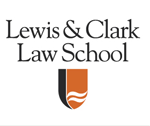Animal Law Review
First Page
79
Abstract
Despite the fact that many Americans view their companion animals as part of the family, the law treats companion animals as personal property. The courts have viewed companion animals as property for over 200 years, however, this precedent no longer adequately accounts for the important role companion animals play in modern day lives, and no longer appropriately compensates for the true value the animal has to the owner. A modified investment approach, stemming from wrongful death precedent, provides both a qualitative and quantitative approach to adequately measure the compan-ionship value these animals have to humans. While courts have entertained various damage theories and causes of action, and a few state legislatures have acted to provide for noneconomic damages or veterinary costs, valuing animals at their market value remains the predominant measure. This is likely due to the overwhelming precedent and various policy concerns around having to both expand and valuate loss of companionship damages. This Article advocates a loss of investment approach, in which the court quantitatively compensates the guardians for the resources they provide for their companion animals during the course of their lives, and uses qualitative criteria that would demonstrate the strength of the relationship that the companion animal had to their owner. This methodology accurately recognizes the relationship that companion animals have with humans and, together with awareness and educational outreach of animal rights, can provide an intermediate mechanism that the courts can use to eliminate the property classification of companion animals once and for all.
Recommended Citation
Zachary Paterick, Timothy Paterick & Sandy Sanbar,
A Stepping Stone Toward Companion Animal Protection Through Compensation,
Animal L. Rev.
79
(2015).
Available at:
https://lawcommons.lclark.edu/alr/vol22/iss1/4

